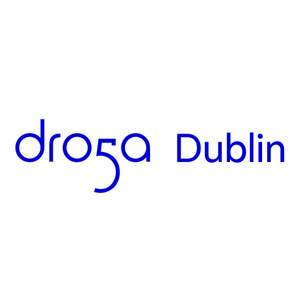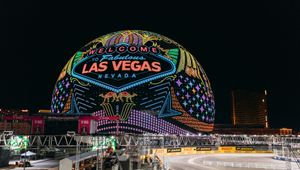
At Droga5 Dublin, part of Accenture Song, Sustainable Production is Made Real with Planning and Data

Jessica Bermingham (left) and Karen Land Short (right)
The advertising industry’s commitment to sustainability is sometimes met with a raised eyebrow, especially amid a flurry of greenwashing accusations. That’s something that both Jessica Bermingham, head of production at Droga5 Dublin, part of Accenture Song, and Karen Land Short, global executive creative director at the Accenture Song Sustainability Studio, are keenly aware of and are currently tackling head on in order to produce tangible improvements to the production process and beyond.
Part of this commitment is the Accenture Song Sustainability Studio, which is using science-based methods to make sustainability an attainable goal for clients, the public, and of course themselves. The goals are ambitious and necessary, with the studio’s teams exploring how the relationship between business and consumers can evolve to benefit the public and planet alike.
On the production side, green issues are front and centre, with Jessica seeing the challenge ahead as a way for the industry to flex its creativity to innovate and deliver the best work. Making sustainability part of the conversation at the strategy stage and also weaving it across the business is vital to making the necessary progress. For the production of ‘’, a research project centred around sustainability, the Droga5 Dublin, part of Accenture Song, team knew that they had to demonstrate the green ethos in action in all aspects of the work. The key was a comprehensive shoot playbook authored by the director that allowed the team to work in multiple international locations using only local crews, therefore minimising emissions.
Below, LBB speaks to Karen and Jessica about all the work Droga5 Dublin and Accenture Song are doing to realise their sustainability goals, the challenges that lie ahead, and why the industry will soon no longer be able to hide under the guise of greenwashing.
LBB> Tell us about the work that Accenture Song Sustainability Studios does - what are the main goals you’re trying to achieve across the network and for your clients?
Karen & Jessica> Overall, Accenture believes sustainability needs to be at the core of every business, including ours, which is why Accenture has ambitious science-based sustainability commitments and ESG reporting. It’s also why there are many sustainability capabilities across the organisation, constantly evolving to what companies and the world needs.
The Accenture Song Sustainability Studio is dedicated to making sustainability relevant and actionable for everyone – for ourselves, for our clients, and for the public at large. We’re made up of human-centred designers, strategists, creatives, innovators, marketers, specialists, researchers and producers - all with a deep understanding of sustainability challenges and tightly connected with the expansive network of sustainability experts and capabilities across Accenture at large.
LBB> Production can be a very wasteful process but the attitude is that sometimes it’s necessary to achieve the right creative results. Is there a worry that making the production process greener will have an effect on creativity or quality of what’s being produced?
Karen & Jessica> No, agencies have always needed to create within boundaries and come up with innovative ways of protecting the creative and the quality of output. We are incredibly lucky to have organisations like Green the Bid and AdGreen who have created tools and workflows based on a deep knowledge of the creative process and the demands of this industry. When you find creative solutions, even small ones, to this particular challenge on a production, it can give you real joy! It also encourages more communication in the process - the more you are in lockstep with your client and production partner, the easier it is to be more sustainable.
LBB> Which step in the production process gets the least attention when it comes to sustainability and, in your opinion, needs extra attention?
Karen & Jessica> The data that is created and stored on any given production can seem like an abstract problem. Green the Bid has some tangible solutions for planning post data storage that we would encourage producers to look into. Their insights have given us a framework to help revise our own mid-term and long-term storage plans for clients.
Taking a wider view, every production process from a simple illustration to a complex integrated campaign, creates, distributes, and stores vast lakes of data using a myriad of techniques and technologies. The conversation around the emergence of generative AI tools needs to go hand-in-hand with strategies to address the data pollution that comes with it. At Accenture Song, we’re developing innovative strategies and initiatives to make our teams aware of the problems and to look for solutions.
LBB> At what point in the production process should sustainability become part of the conversation?
Karen & Jessica> We bring the question into strategy right at the start. We work really closely with our unstoppable colleague, Colette Henry, strategy director and sustainability lead at Droga5 Dublin, part of Accenture Song, to embed it across the business; we would say it is at ‘the beginning, middle, end and also every step in between’. She developed a question about the climate crisis and the biodiversity crisis and put it into all of our creative briefs. This means it is part of every client job and conversation. You have to start asking better questions or the answers will never change. So, we bring that intention to all our work.
Then when we are developing the creative, we consider the influence we have and how we have a role in creating narratives. A little bit of internal research found that people don’t always feel confident talking about sustainability, so Colette and the agency sustainability team have brought in inspiring speakers for events and knowledge sharing and provided training for the teams, such as Change The Brief . This is really important because it builds confidence and changes the culture of the organisation.
Sustainability to us is not just the environmental aspect, it impacts the teams we put in place, the representation on screen and behind the camera as well as encouraging sustainable behaviour on-screen. You have to actively keep an eye on it, make a space for it in the briefings, the pre-production, the production and the wrap.
LBB> For one of your productions, you shot stills and live action in six countries, across five continents for a production that spanned four months and only produced 3.49 tonnes of Co2 for the film and still production piece. Can you contextualise this against other productions? Can you share which client this was for and how you pulled it off?
Karen & Jessica> This one was fun! The project was Sustainability Studio’s , a global anthropological Accenture research project focused on reinventing how organisations approach sustainability by paying closer attention to people’s lives. Instead of trying to make humans more sustainable, we looked at how sustainability can be more human.
In our first meetings, there was overwhelming consensus on one point: if we’re making a film that discusses sustainability, we have an innate responsibility and opportunity to create a production that upholds the ethos of sustainability, not just in what is seen on screen, but in all aspects of the production.
Traditionally, when shooting in multiple geographical locations to create one single film, the director, producer, photographer, director of photography, and select crew would be flying around the globe with the goal of making a film that looks uniform and cohesive. So, the question arose; how do we minimise the travel during the course of this production while upholding the quality of our work? The answer: a comprehensive shoot playbook authored by the director.
For starters, the director and producer would only travel to one location and the rest of the shoots would be led by local, on-the-ground teams. We identified that our director and producer could reach the UK via ferry and decided that this shoot would lay the foundation for a playbook that would serve as a step-by-step guide for local teams. During the weeks leading up to the international shoots, we had multiple remote meetings which served as detailed briefing sessions. Adjustments were made based on feedback given by local teams as they were best equipped to understand the local realities. These remote sessions ensured that even though we had six different production teams, the output remained consistent across the board.
In addition, all the local production companies were briefed on our plan for a sustainable production from the outset to strive for consistency and to factor that into all areas, particularly travel, catering and accommodation. We had really tight crews and used natural light wherever possible. For post, we edited in-house and did remote working sessions with our creative team based in the US. For our graphics, grade and online, there was no travel involved in the post process and all approvals were done remotely.
Our team developed the landing page and web assets with sustainability in mind, taking advantage of caching and a minimalist design to limit the data transfer of the site. It is also hosted on carbon neutral web services to keep its impact down. This was envisioned as a sustainable production from the ground up and there were a lot of challenges but also a lot of successes and learnings that we will take with us moving forward.
LBB> What are some other sustainable production successes that you’ve had?
Karen & Jessica> We get asked a lot what a successful sustainable production looks like, and we are of the opinion that any effort in this area should be considered a success and keep building from that. We started with basic training and from there we have had a lot of wins big and small across our productions. At Droga5 Dublin, part of Accenture Song, almost all of our teams have received sustainable production training, regardless of which department they are in. We work in tight-knit gangs, and on a project, we believe that everyone should feel part of this conversation, and we are lucky to have really great clients pushing this agenda too.
We’ve also started a global Sustainable Production Collective, led by Accenture Song Sustainability Studio and the various global Accenture Song Studios production entities. We are rolling out training and a space to connect and share learnings and case studies. Our production colleagues all over the network share a similar passion for this and are working on how to bring sustainable practices into their own process in a way that works for them, their clients and their local production ecosystems.
LBB> What kind of challenges are you currently facing and how are you working on overcoming them?
Karen & Jessica> The biggest challenges include aiming for consistency across our work, compressed pre-production timelines, keeping an eye on the bigger picture and finding the time to stop and ask yourself hard questions. The leadership team in Dublin made a decision about a year ago that this was simply going to be the way we work from now on, regardless of any challenges.
We should be clear that our work in this space continues to be absolutely imperfect but that's okay! We are lucky to have incredible production partners who challenge us with the hard questions. For example, they can apply all this hard work and measurement on the ground but if we make a last-minute decision that causes additional waste or travel more people to a shoot than planned, what message are we sending? The key is to continue to ask these questions and challenge ourselves to always do better and make considered choices with the ultimate goal of minimising emissions as quickly as possible in the areas that have the biggest impact.
LBB> What kind of advice do you have for producers/directors when working with local crews to minimise emissions?
Karen & Jessica> A clear upfront briefing on your intention to produce sustainably and your partnership and support in that initiative can have really positive effects. After that, you need to understand and respect the local ecosystem; negotiations on process, prices, supplies, timings, food and transportation should be led by the experts on the ground. You need to be cognisant of not disrupting local production ecosystems and not be dictated by a one-size-fits-all ideology.
LBB> Where do you see sustainable production evolving in the next few years?
Karen & Jessica> It will be standard across all productions worldwide. It's not optional if we have any chance of tackling the climate crisis. We are very grateful to the team at Ad Net Zero for providing a wider framework which we can work within. At Droga5 Dublin, part of Accenture Song, and with our Sustainability Studio, we are looking at how new tools and technologies can help us and others in this space. For anyone interested in innovation and behavioural change, it’s the perfect area to jump into and everyone is welcome.
Companies are beginning to wrap their heads around their Scope 3 emissions, largely because reporting requirements are coming in the near future. Ad agency partners and campaign productions are a part of this footprint - and not a small part. In the next few years, it will absolutely be expected that campaign production emissions are tracked and curbed. Globally, we’re already hearing this is a growing priority for many clients, which is fantastic. We’re also expanding sustainable practices to include media, another area where advertising is implicated in a big emissions footprint. And, of course, we’re very focused around the messaging of creative campaigns themselves. Greenwashing and purpose-washing lawsuits are skyrocketing. Brands desperately need trusted partners as they try to be transparent and accountable. We are using our special mix of creativity, data, and deep sustainability expertise to lead brands on what can be complex and nuanced sustainability efforts.













